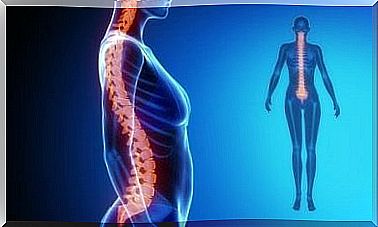Really Ultra-processed Fake Healthy Foods

We do not find ultra-processed foods only in fast foods and among industrial confectionery products. There are, in fact, several fake healthy foods that are good to know to avoid buying them.
It is important to recognize these products and limit their consumption, as they are related to obesity, cardiovascular disease and diabetes.
Ultra-processed foods
Ultra-processed foods are food products that contain numerous additives that impart an artificial flavor, added sugars, stabilizers and preservatives.
We are therefore led to believe that it is only precooked food, fast food or energy drinks. Their presence is instead much more extensive and sometimes hides behind the appearance of healthy products.
The desire to protect themselves and follow a correct diet is increasingly widespread among consumers; for this reason the food industry has decided to promote its products with beneficial qualities for health.
The packages tend to enhance only the nutrients that favor a better physical and mental state. However, it is important to read the label carefully to know the composition of the food in question.

5 fake healthy foods
As anticipated, these products are very popular. In the following lines we present some false healthy foods that are best consumed only occasionally.
1. Cereal or energy bars
One of the most popular products in the fitness world and among light foods . An easy-to-carry, quick and light snack to recharge your batteries wherever we are.
The problem, however, is that in many cases these bars contain large amounts of added sugar in the form of honey, syrups or glucose and fructose molasses.
The result will be a snack that can give you energy instantly, but for a short time; the sense of satiety will also be quite short.
2. Protein bars
Unlike the previous ones, these bars have a higher protein content. They are indicated after training and help to satisfy a high protein requirement.
In large part, they are made from milk or egg proteins. Nonetheless, some contain abundant sugars and saturated fats, sometimes even in larger quantities than a chocolate snack.
3. Fake Healthy Foods: Fiber-filled cookies and fitness cereals
Fitness biscuits and cereals are among the most consumed due to their fiber content. However, the high quantity of added sugars must also be considered . Cookies also often contain hydrogenated fats and oils that are best avoided.
In both cases it is essential to read the labels well. Some classic biscuits and cereals have the same, if not better, nutritional composition of “fitness” brands.
4. Protein sweets
Protein sweets are bought by people who want to improve their body composition; they are popular, for example, among those looking to lose weight and / or prevent health problems.
This still new food group on the market includes various products including donuts, cookies, breads, croissants, muffins and all kinds of sweet snacks.
What’s the problem? First of all, the long list of ingredients with added flavorings and preservatives. Some of which are difficult for the consumer to recognize.
Second, the nutritional composition. Aside from the increased amount of protein, they are little or no nutrients at all. Considering them healthier than their classic version can lead to a higher consumption which can be counterproductive.
5. Protein shakes
For a long time reserved only for sportsmen, today they have reached all people who want to take care of themselves and do not have time to cook a full meal.
Easy to prepare, comfortable to carry and quick to consume. But they have the same nutritional composition as energy and protein bars.
Why is it important to know about fake health foods?
For several years, nutrition and health experts have been warning about the consumption of ultra-processed foods. Why are they in the spotlight? Why is it worth avoiding its consumption?
The first problem is the almost zero supply of nutrients that have been shown to be necessary for health. These are complex carbohydrates, healthy fats, fiber, vitamins and minerals.
Conversely, these products contain high amounts of salt , added sugars and saturated and hydrogenated fats. In addition to presenting a high energy density.
Not to mention that their palatability and advertising encourage excessive consumption. This continued consumption results in long-term health problems.
Over the past decade, science has proven their link to a multitude of negative results. As evidenced by a systematic review published in 2020, the health problems associated with these foods are:
- Higher prevalence of overweight and obesity, as well as a higher body mass index.
- Increased risk of metabolic syndrome and all related factors: high blood sugar, hypertension, high blood triglycerides.
- Increased incidence of cardiovascular, arterial and cerebrovascular diseases.
- Depression.
- Irritable bowel syndrome.
- A higher mortality rate.

Consume false health foods responsibly
Ultra-processed foods contain a lot of added sugar, low-quality fat, and salt. Additionally, they offer little fiber, vitamins and minerals.
Many are sold as valid alternatives to improve consumer health, but the truth is that it is always preferable to prepare them yourself or opt for fresh food.
Sporadic consumption of these foods is not harmful. However, you must be aware of the products you buy so as to make a correct consumption.
It is advisable to always read the nutritional label and if you want to include them regularly in the diet, better prepare them at home; easy to prepare, tasty and nutritious.









